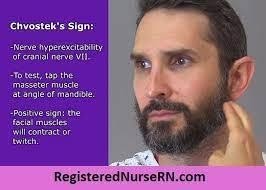A client who has advanced cancer tells the nurse that they have a difficult time talking to anyone about the illness. Which of the following actions should the nurse take to encourage therapeutic communication?
Keep the conversation moving by asking about the client's family.
Let the client know that as their nurse, they are available and willing to listen.
Ask if the client understands what to expect in the advanced stages of the illness.
Ask the client's visitors not to say anything about the advanced disease.
The Correct Answer is B
A. Keep the conversation moving by asking about the client's family: While engaging the client in conversation is important, this statement does not specifically address the client's difficulty in talking about their illness.
B. Let the client know that as their nurse, they are available and willing to listen: Correct. This response demonstrates the nurse's willingness to provide emotional support and active listening. Encouraging the client to express their feelings and concerns about their illness is essential in promoting therapeutic communication.
C. Ask if the client understands what to expect in the advanced stages of the illness: While discussing the client's understanding of their illness is essential, it does not directly address their difficulty in talking to others about it.
D. Ask the client's visitors not to say anything about the advanced disease: This response may hinder communication and restrict the client's opportunity to talk about their feelings and concerns with supportive visitors.
Nursing Test Bank
Naxlex Comprehensive Predictor Exams
Related Questions
Correct Answer is D
Explanation
A. Bone pain: Bone pain is not a characteristic finding of hypomagnesemia. Hypomagnesemia is an electrolyte imbalance, and bone pain is not a typical symptom associated with it.
B. Drowsiness: Drowsiness may occur in hypomagnesemia, but it is not a specific or characteristic sign of this condition. Other electrolyte imbalances and medical conditions can also cause drowsiness.
C. Bowel hypomotility: Hypomagnesemia can cause bowel hypomotility (decreased bowel movements), but it is not the most specific finding associated with this condition.
D. Positive Chvostek's sign: Correct. Hypomagnesemia can lead to neuromuscular irritability, and a positive Chvostek's sign is a clinical manifestation of this condition. A positive Chvostek's sign is elicited by tapping the facial nerve (at the level of the zygomatic arch) and observing a
twitching of the facial muscles, which indicates increased neuromuscular excitability.

Correct Answer is C
Explanation
A: Asking the client why they are angry may come across as confrontational and defensive, potentially escalating the situation. It does not promote open communication or therapeutic rapport.
B: Sharing personal information about diabetes running in the nurse's family is not relevant to the client's feelings or concerns and may not be helpful in addressing the client's anger.
C: Correct. Acknowledging the client's feelings of anger and offering to sit down and talk provides an opportunity for therapeutic communication. This response demonstrates empathy and a willingness to listen and address the client's concerns about insulin therapy.
D: While it is true that insulin therapy can help reduce the risk of complications in type 2 diabetes, this response may come across as dismissive of the client's feelings and concerns. It does not address the emotional aspect of the client's anger.
Whether you are a student looking to ace your exams or a practicing nurse seeking to enhance your expertise , our nursing education contents will empower you with the confidence and competence to make a difference in the lives of patients and become a respected leader in the healthcare field.
Visit Naxlex, invest in your future and unlock endless possibilities with our unparalleled nursing education contents today
Report Wrong Answer on the Current Question
Do you disagree with the answer? If yes, what is your expected answer? Explain.
Kindly be descriptive with the issue you are facing.
